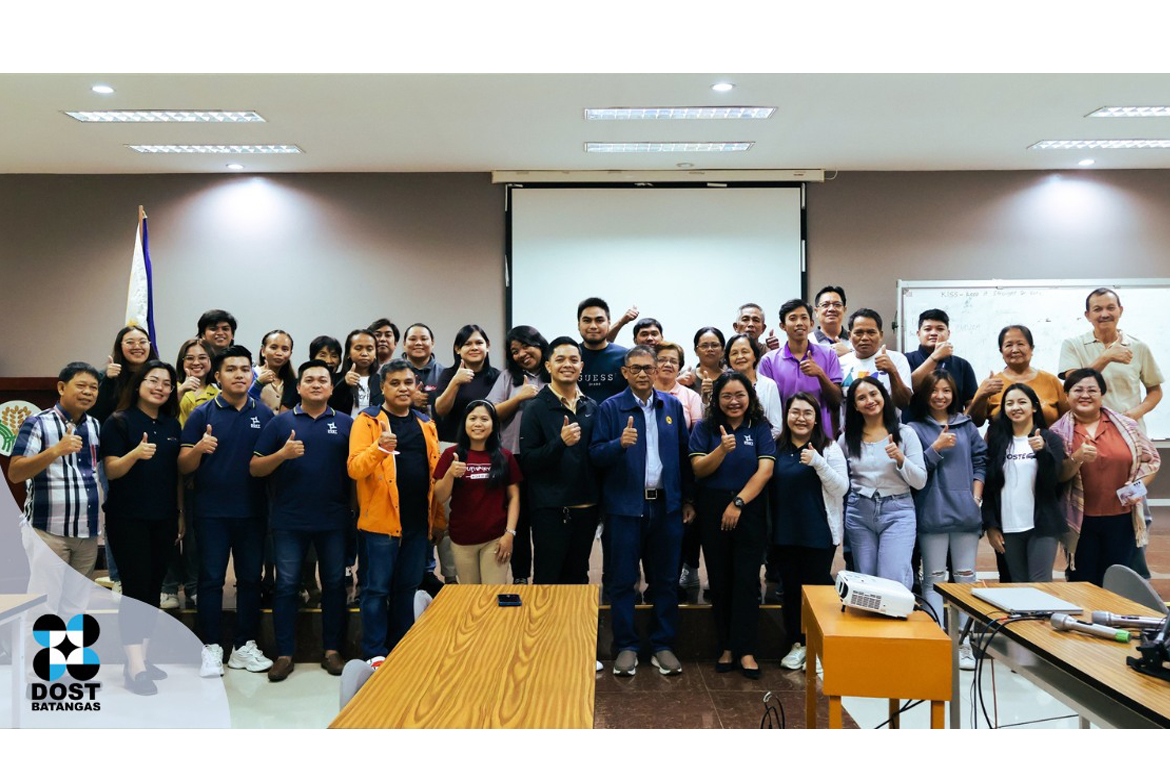By John Maico M. Hernandez
The three-phase training program of the Department of Science and Technology (DOST)-CALABARZON and the Department of Agriculture-Philippine Rural Development Project (DA-PRDP) for cooperative beneficiaries of the food processing enterprises project concluded with sessions on the Hazard Analysis and Critical Control Points (HACCP) and Traceability Systems held at Argosino Hall, LARES Compound, Lipa City, Jan. 23-25.
The training aimed to equip cooperative beneficiaries with the necessary knowledge and skills to ensure food safety and quality control. The first two sessions of the training program focused on basic food hygiene, food safety hazards, and current good manufacturing practices. Through the HACCP and Traceability Systems sessions, participants learned how to identify potential hazards in food production, establish critical control points, and implement effective traceability systems to track the flow of products throughout the supply chain.
These training sessions were designed to help the beneficiaries meet food safety standards and regulations and to enhance their competitiveness in the market. By implementing HACCP and traceability systems, cooperative beneficiaries can minimize the risk of foodborne illnesses, improve product quality, and establish a strong reputation for food safety.
Among the topics covered in the session for HACCP were the overview of HACCP, pre-requisite programs, preliminary steps, and the seven principles of HACCP. The summary of the HACCP plan is the primary output of this training. A session on product traceability was also integrated into the training to strengthen their individual traceability systems. In order to assist them in improving their packaging and labeling in order to comply with AO 2014-0030, Revised Rules and Regulations Governing the Labeling of Prepackaged Food Products in the Philippines, additional sessions on packaging technology and labeling requirements were also included in the training.
A separate session for preparing and uploading documents for the application for a license to operate at the Food and Drug Administration’s online portal was also provided to assist the cooperative beneficiaries in navigating the necessary administrative processes.
The cooperative beneficiaries that participated in the training were Aga Farmers Multi-purpose Cooperative, Magsasakang Tanaueño Agricultural Marketing Cooperative, Tanauan Organic Natural Farming Association, Quezon Federation and Union of Cooperatives, and the Luisiana Cacao Grower Producers Cooperative.
DOST CALABARZON Food Safety Team members, Mr. John Maico Hernandez, Ms. Anna Marie Marasigan, and Mr. Mhark Ellgine Libao, served as the resource speakers during the training sessions.
